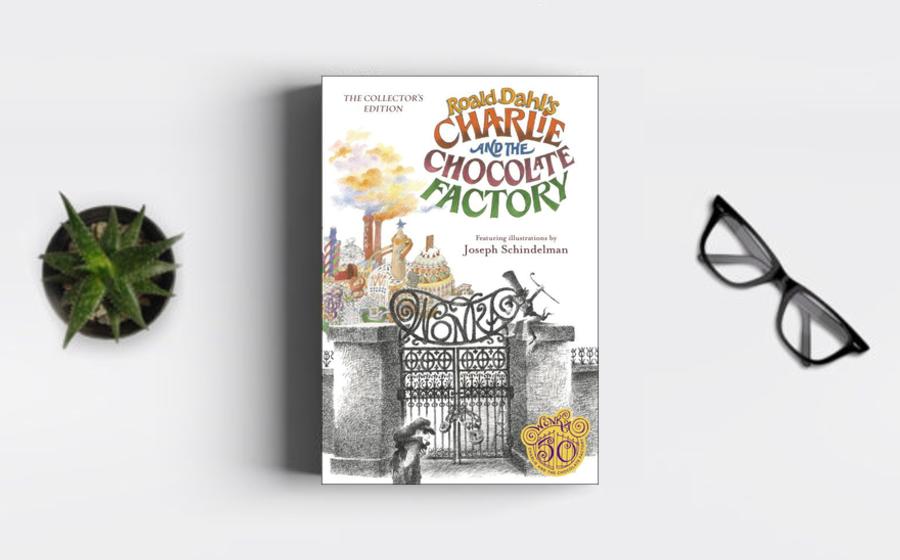"Charlie and the Chocolate Factory" is not just a
children's book; it's a magical journey into a world of
pure imagination that has stood the test of time since
its publication in 1964. In this review, we'll explore
why "Charlie and the Chocolate Factory" remains a
timeless children's classic, celebrated for its
enchanting narrative, unforgettable characters, and
enduring life lessons.
At the heart
of the timelessness of "Charlie and the Chocolate
Factory" lies the enchanting setting of Willy Wonka's
Chocolate Factory. Dahl's vivid and whimsical
descriptions transport readers to a place where rivers
flow with chocolate, gumdrops grow on trees, and
everlasting gobstoppers promise infinite sweetness. The
factory becomes a timeless wonderland, inviting children
and the young at heart to escape into a world where the
ordinary transforms into the extraordinary.
The
universal appeal of this setting lies in its ability to
evoke a sense of awe and wonder, transcending cultural
and temporal boundaries. The Chocolate Factory becomes a
symbol of limitless possibilities, where dreams are
realized, and the magic of childhood imagination is
celebrated. The timeless love for sweets and the
fantastical nature of the factory's creations ensure
that children from different eras can connect with the
marvel within its walls.
Dahl's characters
in "Charlie and the Chocolate Factory" are not merely
ink on paper; they are timeless icons of childhood that
resonate across generations. From the endearing Charlie
Bucket to the enigmatic and eccentric Willy Wonka, each
character leaves an indelible mark on the reader's
memory.
Willy Wonka, with his flamboyant attire
and mischievous twinkle in his eye, embodies the spirit
of everlasting childhood wonder. The other children on
the factory tour, representing various vices, serve as
cautionary yet entertaining figures, leaving a lasting
impression. Charlie Bucket, with his humility and
resilience, becomes a timeless protagonist, capturing
the hearts of readers with his relatable journey.
These characters go beyond their narrative roles;
they become archetypes, representing universal qualities
and human virtues. The enduring nature of their appeal
ensures that readers, whether in the 1960s or the
present day, can connect with the timeless magic they
bring to the story.
Dahl's narrative in
"Charlie and the Chocolate Factory" is a masterpiece of
inventive storytelling. The plot, centered around the
search for golden tickets granting entry to Willy
Wonka's factory, is a delightful rollercoaster of
surprises and sugary delights. Dahl's boundless
imagination infuses the tale with fantastical elements
that feel both timeless and rooted in the universal
experiences of childhood.
The inventive use of
language, clever wordplay, and Dahl's distinctive humor
contribute to the timeless enjoyment of the narrative.
Whether describing the quirky Oompa-Loompas or creating
whimsical names for candies, Dahl's linguistic
creativity adds a layer of richness to the storytelling
that transcends the passage of time.
Beneath the sugary surface of chocolate rivers and
candy-coated wonders, "Charlie and the Chocolate
Factory" carries timeless themes and moral lessons.
Dahl, known for his subtle yet impactful morality tales,
weaves messages about the consequences of greed, the
value of humility, and the rewards of kindness into the
narrative.
The fate of the other children who
secure golden tickets serves as cautionary tales,
emphasizing the perils of excess and selfishness.
Charlie's ultimate triumph, not just in gaining access
to the factory but also in inheriting it, reinforces the
timeless idea that goodness and virtue are ultimately
rewarded.
The cultural impact of "Charlie and
the Chocolate Factory" extends far beyond the pages of
the book. The story has been adapted into multiple
films, stage productions, and even a theme park ride.
Each adaptation, while bringing its own interpretation,
contributes to the enduring legacy of Dahl's tale.
Willy Wonka, portrayed memorably by Gene Wilder and
Johnny Depp in film adaptations, has become an iconic
figure in popular culture. The whimsical imagery of the
Chocolate Factory, the Oompa-Loompas' catchy songs, and
the excitement of finding a golden ticket have become
ingrained in the collective imagination.
"Charlie and the Chocolate Factory" remains a timeless children's classic not only for its enchanting setting, unforgettable characters, and inventive narrative but also for the enduring themes and lessons it imparts. Roald Dahl's creation is not just a book; it's a golden ticket to a world of pure imagination, where the magic of childhood wonder and the sweetness of moral storytelling






